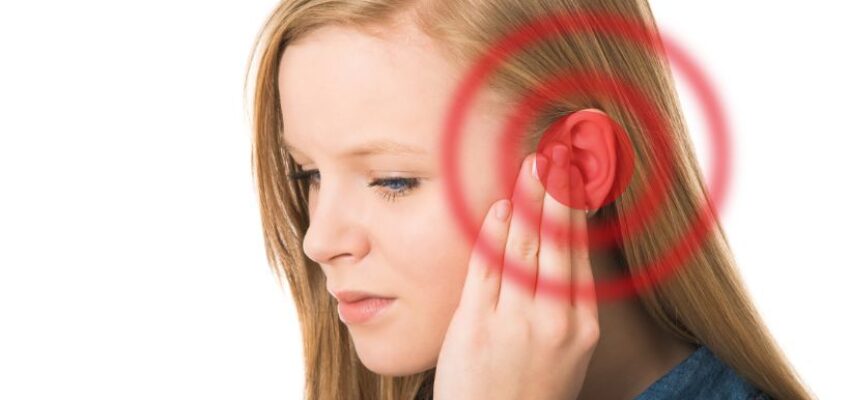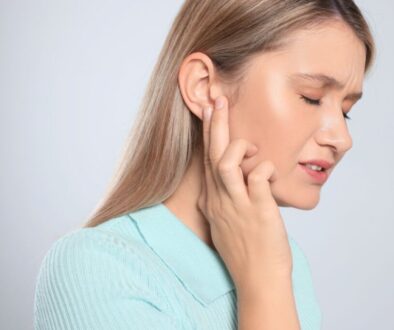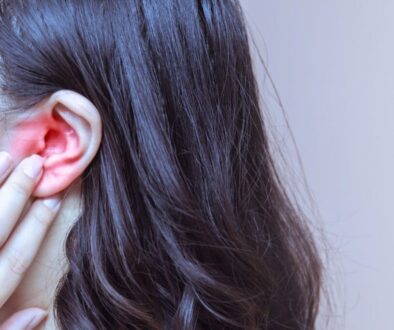Does Sinus Infection Cause Hearing Loss or Tinnitus?

Published June 1, 2023
A variety of uncomfortable signs and symptoms can come with a sinus infection. Among the concerns that arise with sinus infection: hearing loss and the occurrence of tinnitus. Sinus infections can occur due to various factors, including respiratory tract infections, allergies, structural abnormalities in the sinuses, or immune system disorders. When the sinuses become blocked or inflamed, it creates an environment favorable for the growth of bacteria, viruses, or fungi, leading to an infection.
Sinus Infection: Hearing Loss
Sinus infections can cause Eustachian tube dysfunction, disrupting the normal pressure balance between the middle ear and the external environment. The Eustachian tubes connect the middle ear to the back of the throat, playing a crucial role in equalizing air pressure.
When the Eustachian tubes are not functioning properly, it can obstruct the movement of air and the equalization of pressure in the middle ear. As a result, sound waves may not be transmitted effectively, leading to temporary hearing loss or a muffled hearing experience.
In cases of acute sinusitis, hearing loss is often temporary and resolves once the underlying infection is treated. The inflammation and fluid buildup associated with sinus infections can impair the normal function of the middle ear, leading to reduced sound transmission and hearing difficulties. However, hearing typically returns to normal once the infection subsides and the inflammation decreases.
Sinus Infection: Tinnitus
Tinnitus is the perception of sound in the absence of external noise. It can manifest as ringing, buzzing, hissing, or other phantom sounds. Tinnitus can be temporary or chronic, and its causes can vary.
While sinus infections primarily affect the respiratory system, they can sometimes contribute to the development of temporary tinnitus. The underlying mechanisms for this association are not yet fully understood, but it is believed that the inflammation and congestion associated with sinus infections can affect the inner ear or auditory pathways, leading to the perception of tinnitus.

Temporary tinnitus may occur during a sinus infection due to changes in pressure, fluid buildup, or inflammation. In most cases, after a sinus infection, ear ringing also subsides. However, if tinnitus persists or becomes chronic, it is advisable to seek medical attention for further evaluation.
Sinus Infection: Hearing Loss Remedy
If you experience any symptoms of hearing loss, such as difficulty understanding conversations, asking others to repeat themselves frequently, or struggling to hear in noisy environments, it’s essential to seek medical attention.
When sinus infection-related hearing loss is suspected, consult a healthcare professional, such as an ear, nose, and throat (ENT) specialist or audiologist. These specialists can conduct a thorough examination, evaluate your hearing abilities, and recommend appropriate treatment options.
Diagnostic tests, including audiograms and tympanometry, may be performed to assess your hearing abilities and identify any underlying causes. Treatment options for sinus infection-related hearing loss may include antibiotics, nasal decongestants, antihistamines, or surgical interventions in severe cases.
Sinus Infection: Hearing Loss Prevention
Practicing good sinus health is essential for reducing the risk of sinus infections and their potential impact on hearing. This includes keeping the nasal passages clear, avoiding irritants and allergens, and maintaining a healthy lifestyle.
To minimize the occurrence of sinus infections, it is advisable to practice good hygiene, such as regular handwashing, avoiding smoking and exposure to secondhand smoke, staying hydrated, and using an air humidifier or saline nasal sprays to keep the nasal passages moisturized.
When sinus infections occur, immediate and appropriate action is necessary to prevent complications. This may involve using over-the-counter or prescribed medications, applying warm compresses, using nasal irrigation, and following your healthcare professional’s advice.
Conclusion
Sinus infections can impact hearing health, especially when they lead to Eustachian tube dysfunction or middle ear inflammation. While acute sinus infection hearing loss, chronic sinusitis, and repeating infections can contribute to long-term hearing damage. Therefore, seeking medical attention, practicing prevention strategies, and managing sinus infections effectively are vital for preserving hearing abilities.
FAQ
- How long does tinnitus last after sinus infection?
After 48 hours, most people with tinnitus no longer experience any symptoms.
- Can a sinus infection cause permanent hearing loss?
Chronic sinusitis and infections can increase the risk of permanent hearing loss if left untreated.
- Can sinus infections affect both ears simultaneously?
Yes, sinus infections can affect both ears simultaneously.
Benefit From The Latest Advancements In Probiotic Science With Bionaze
Bionaze is a proprietary blend of probiotics proven to promote ear, nose, and throat health, improve digestion, and support your immune system. The active ingredients BLIS K12, and BL-04 are considered among the best probiotics according to science.
Get 25% Off Your First Order when you use BIO25 at checkout!

This Content Has Been Reviewed For Factual Accuracy
This content has undergone thorough fact-checking by our team of internal experts. Learn more about the meticulous editorial standard for our website here.
ADVERTISEMENT

About The Author
Krizzia Paolyn has a bachelor’s degree in Psychology. She started her career as a content writer for various digital magazines and renowned publications. It has always been her passion to share her voice, and at the same time, to encourage other people to speak up.




